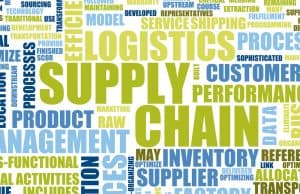
Businesses need access to embedded analytics to sense changes that could adversely impact supply chains.
IBM has allied with LevaData to provide a cognitive procurement platform that organizations can access as a service dubbed DirectSpend IQ.
The LevaData Cognitive Sourcing Platform is optimized for direct material procurement processes that need to be infused with more intelligence as supply chains become more dynamic, says LevaData CEO Rajesh
Kalidindi.
See also: How Real-Time Data is Automating the Temperature-Controlled Supply Chain
As tariff tensions rise between the U.S. and China and Britain and members of the European Union increase, Kalidindi says it’s become apparent static supply chains need access to embedded analytics that will enable organizations to sense changes that could adversely impact supply chains or present new opportunities for optimization by leveraging recommendations made by DirectSpendIQ.
The challenge organizations face now is they may only have a few weeks to adjust their supply chains in a world that is more volatile than ever. The more actionable intelligence organizations have their disposal the faster they will be able to proactively make those adjustments, says Kalidindi.
Moving procurement applications to the cloud not only reduces the cost of acquiring a modern procurement application; it also makes it simpler to make adjustments by aggregating internal and external data sources to identify risks to the supply chain, adds Kalidindi. Most procurement decisions today are being driven by whatever data happens to be available within an on-premises supply chain application, which is often of limited value in a crisis scenario, contends Kalidindi.
“Organizations are being handcuffed today by limited information,” says
Kalidindi.
At the same time, as more analytics become embedded in the procurement application, the organization starts to develop a memory of previous transactions that makes it easier to both manage existing suppliers and onboard new ones. That becomes especially important as organizations start to extend procurement processes across cross-functional teams that may even span different organizations. As a rule, the more suppliers and organizations can manage, the more control it can exercise over pricing by playing one supplier off another.
In addition, analytics makes it simpler to bring new procurement officers up to speed because that institutional memory becomes more accessible, which helps minimize any disruption that might acquire due to staff turnover.
By applying analytics to both internal and external data, Kalidindi says there may even be a day when it becomes possible to autonomously optimize supply chains using artificial intelligence (AI) models created using parameters defined by a procurement team. In fact, that race to apply analytics and AI to procurement processes is fueling something of an algorithm arms race among suppliers of next-generation digital supply chain applications.
At a time when product margins are under pressure across every vertical industry, the ability to purchase materials in a timely manner at a lower cost can now have a much bigger impact on both revenue and profits. If a material is not available suddenly because of, for example, a flood, organizations may not be able to meet demand. If rivals can attain a material at a lower cost, it can manifest itself in a pricing advantage. Regardless of the impact, the one thing that is clear is legacy procurement applications have become a business liability.


























